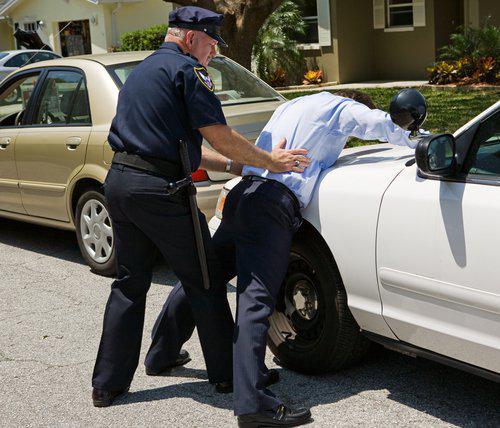Drivers' Rights during Traffic Stops
 Although many drivers understand that they have certain rights during traffic stops, often these rights are misunderstood or go unexercised. Yet, with over 200,000 traffic stops a year according to a report by the Wisconsin State Patrol, many people stand to benefit from more clearly understanding their rights when interacting with the police. With regard to traffic stops, two of the most important rights that people have are the right to not consent to searches, and the right to remain silent.
Although many drivers understand that they have certain rights during traffic stops, often these rights are misunderstood or go unexercised. Yet, with over 200,000 traffic stops a year according to a report by the Wisconsin State Patrol, many people stand to benefit from more clearly understanding their rights when interacting with the police. With regard to traffic stops, two of the most important rights that people have are the right to not consent to searches, and the right to remain silent.
The Right Not to Consent to Searches
The Fourth Amendment provides people the right to be free from unreasonable searches. This means that police cannot simply stop a person and search their car without good reason. Instead, they need to have “probable cause” to believe that their search would turn up evidence of a crime. This is important because if an officer performs a search without probable cause, then any evidence they find cannot be used at trial.
However, officers are allowed to ask a person for permission to search their car. If a person consents, then the officer no longer needs probable cause, and they can search the car unhindered. It is important to understand that not consenting to a search is not the same thing as not being searched. If a person refuses to allow a search, the officer may still say they have probable cause and perform the search anyway. Withholding consent is a legal tool that can allow a defense attorney later on in the case to suppress the evidence, which would not be an option in cases where the person consented to the officer's search.
The Right to Remain Silent
The other important right that people have with regard to traffic stops is the right to remain silent. People do not need to feel compelled to answer an officer's questions during a traffic stop. The exception to this is that officers are allowed to ask for a person's license, registration, and proof of insurance upon pulling someone over.
Drivers should also be aware that there are practical concerns with how and when to exercise this right. People do not have to talk to the police who pulled them over, and the answers to some questions like “Do you know how fast you were going?” can be used against a driver later. However, being rude or needlessly uncooperative with the officer can make the stop more difficult in the long run. Still, it is important for drivers to realize that they do not need to answer potentially incriminating questions.
Traffic stops can often lead to serious charges if they involve major traffic violations or lead to the discovery of other crimes. If you are facing criminal charges arising out of a traffic stop, contact an experienced Milwaukee criminal defense attorney today.







